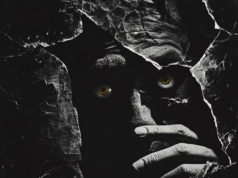The last couple of weeks have sucked, objectively speaking, seeing that everyone’s been confined to their homes to avoid catching COVID-19. With the hysterics of our 24-hour news cycle and a shelter-in-place mandate, it’s easy to feel scared and overwhelmed, but Matthew McNeal is here to tell you that things will get better –– trust him.
On Friday, the Fort Worth singer-songwriter will release his latest album. Good Grief couldn’t be coming at a better time. Despite its title, McNeal’s third long player is a source of light in today’s seemingly impenetrable darkness.
Writing the record also served as way for McNeal to process several of his own tragedies, which reach near-Shakespearean heights.
“All of the songs on Good Grief were written to help me deal with, cope with, and heal from the chaos and all the bad shit that happened to me over the past two years,” McNeal said.
Boy, he’s not kidding.
In 2018, McNeal lost his father unexpectedly, and last year, a fire destroyed his house. Two weeks after the blaze, his vehicle was totaled in a hit and run after someone T-boned him on the highway. Next, McNeal and his then-fiancée (now wife) had their identities stolen, all while they were in the process of planning their wedding.
Good Grief was originally slated for a 2019 release, McNeal said, but it was pushed to this year because of the fire. Then this month, the coronavirus pandemic forced him to cancel multiple appearances in support of the album.
McNeal and his bandmate, drummer Andre Black, considered delaying the record’s April 3 release but ultimately decided against it. McNeal said he hoped that Good Grief would help his audience alchemize today’s turmoil into a sort of catharsis. He was right to think that. It absolutely does.
On Good Grief, McNeal masterfully blends several influences: Old-school soul, country, and rock ’n’ roll all left imprints on his signature sound. Instead of adhering to rigid genres, though, McNeal wanted to forge his own unique style.
“That’s kind of what we were going for on this record,” he said. “I went through a bunch of strange circumstances in life over the last couple of years, so why wouldn’t the music be its own interesting thing as well?”
McNeal originally penned cuts like “I Think It’s Real” and “All for Nothing” as a way of processing his emotions, but now, each of the album’s nine songs have taken on new meaning. Even Good Grief’s opulent production works as a form of escapism, as the listener finds herself hypnotized by the sonic beauty of McNeal’s universe.
The album’s sleeper hit is the breezy “Somehow (Wild Roses),” in which the interplay between pedal steel and guitar acts as a tonic for frayed nerves.
“Bringing home wild roses / Made me feel like I was right where I needed to be / Somehow,” McNeal sings with soulful sincerity. “Then I realize / Almost overnight / That I’ve got to go my own way / Even if that’s to stay / Home alone.”
For the recording process, McNeal enlisted the help of several titan musicians: bassist Aaron McClellan (Israel Nash, The Fieros), guitarist Joey McClellan (Midlake, Israel Nash, The Fieros), and pedal steel aficionado Eric Swanson (Israel Nash). They laid down half of the tracks at Denton’s Redwood Studios and the other half at McNeal’s own Matte Black Sound studio in Fort Worth.
McNeal’s sophomore album, 2018’s Good Luck, had been recorded straight to tape, but with his latest work, the singer-songwriter said he wanted to take a more modern approach to the recording process. He recruited Grammy award-winning audio engineer Ted Young (The Rolling Stones, Sonic Youth, Kurt Vile) to spearhead the record’s lush production.
Sadly, McNeal had to cancel his Good Grief album release tour, and it’s impossible to know when he’ll have the chance to play in front of a large audience again. Until then, his fans should content themselves with playing Good Grief ad infinitum. Doing so makes one realize that this storm, too, shall be weathered.
“Maybe these songs will help [people] heal,” McNeal said. “If it adds some positivity and healing to some people in the midst of all of this quarantine, then that’s what we want to do.”












